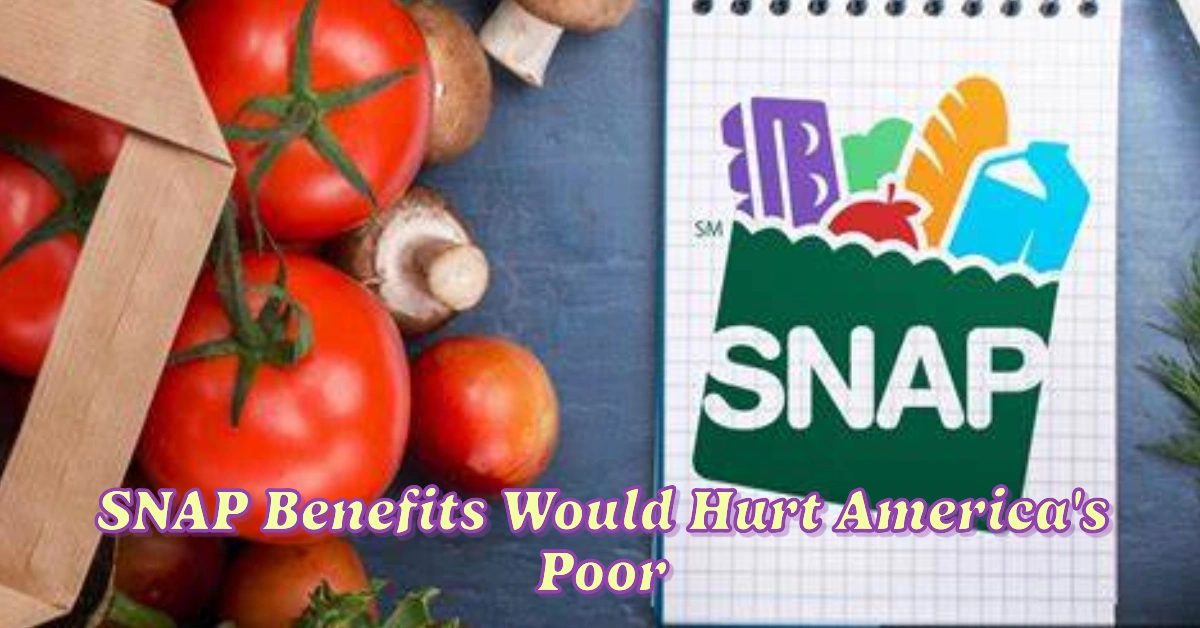The Supplemental Nutrition Assistance Program (SNAP), a decades-old safety net designed to help low-income families, is under threat from powerful political figures such as Elon Musk, former President Donald Trump, and their allies in Congress. But the reality of what’s at stake becomes clearer when you consider people like Ndaneh Luseni, a 34-year-old single mother from Alexandria, Virginia, who relies on SNAP to provide food for her three children. Despite only receiving $83 a month from the program, Luseni says the assistance provides some level of stability, helping her cover essentials like eggs, milk, and bread while she works as a clinical technician at a Northern Virginia hospital.
Table of Contents
“I know the kids will have something in the house … some stability,” Luseni shared. With a paycheck of $600 every two weeks after taxes, she struggles to make ends meet without the crucial support SNAP provides.
Yet, Congressional Republicans are pushing for drastic cuts to this program, which was established during the New Deal to support vulnerable populations, including low-income workers, children, and people with disabilities. These cuts, if implemented, could cost millions of Americans their only source of reliable nourishment, all in the name of tax breaks for the wealthiest Americans.
A Cruel Attempt to Extend Wealth Inequality
The proposed cuts to SNAP are part of a broader agenda to trim social safety nets in order to finance tax cuts for corporations and the wealthiest citizens—many of whom, like Trump and Musk, can afford to live lavishly without relying on government assistance. The plans treat SNAP recipients as burdens, neglecting the fact that these funds are essential for families living on the brink of poverty. While the rich get wealthier, working-class individuals like Luseni are left to fight for their survival.
“This is plutocratic policy at its worst,” said Jay Speer, executive director of the Virginia Poverty Law Center. He emphasized the cruelty of these proposed cuts, especially considering how many Americans are already struggling to make ends meet. Over 866,000 Virginians, nearly 10% of the state’s population, rely on SNAP, with national figures revealing that more than 42 million people in the U.S. use the program each month.
Despite this, the U.S. House of Representatives has recently voted to reduce funding for the Agriculture Committee—responsible for overseeing SNAP—by at least $230 billion through 2034. Such cuts would inevitably hit the program hard, leaving millions of vulnerable individuals without essential support.
The Ripple Effects of Cuts: Families, Communities, and Economies Will Suffer
For many individuals who depend on SNAP, the program is more than just a government handout. It’s a lifeline. Cassie Edner, a public benefits attorney at the Virginia Poverty Law Center, noted that SNAP is essential for ensuring that children grow up healthy and seniors have access to nutritious food. “Without this, they have to choose between paying rent or mortgage and putting food on the table,” she explained.
The cuts would also have ripple effects throughout local economies. Retailers who accept SNAP payments—numbering around 6,400 in Virginia alone—would lose significant revenue. According to the Center on Budget and Policy Priorities, every $1 spent on SNAP benefits generates $1.54 in economic activity when spent at local businesses. This economic boost would be lost, leaving communities with fewer resources and a weakened economy overall.
Additionally, forcing states and nonprofits to pick up the slack for federal cuts would create an insurmountable burden. States already contribute to the cost of administering SNAP, and shifting more responsibility to them would require either raising taxes or cutting other critical programs and services.
The Moral Failure of SNAP Cuts
State Sen. Mamie Locke, D-Hampton, who grew up in poverty and depended on food stamps, is baffled by the push to cut the program. “It is critically important that it be maintained as it’s currently funded, so that families can get sustenance,” Locke said. “Why is that hard to sell?”
Locke’s own experience, growing up in Jackson, Mississippi as one of 11 children raised by a single mother, highlights the real-life consequences of cutting food assistance programs. “Even though my mother worked, she often worked minimum-wage jobs,” Locke said. “She had to depend on supplemental support through food stamps and free lunch programs.”
Barry Muhammad, a 69-year-old Army veteran from Hampton, receives $160 in SNAP benefits each month. For him, it covers necessities like bacon, bread, and oatmeal, while freeing up funds for rent, electricity, and gas. “The people in Washington wielding an axe to these vital programs have never had to experience what people like me in my condition had to go through,” Muhammad said. “They’re rich, wealthy people who don’t know the struggles we face.”
Who Will Receive $292 in SNAP Food Stamps in the First Week of March?
SNAP Restrictions on Food in 2025: What You Can and Cannot Buy with Food Stamps
SNAP Benefit Increase 2025: Higher Food Stamp Rates, Eligibility Updates, and Payment Dates
SNAP Payments of $292 Now Available to Eligible Americans in All Participating States
The Bottom Line: Protecting SNAP Is a Moral Imperative
The battle over SNAP funding is not just a political issue; it’s a question of morality. If Congress continues down this path of dismantling safety nets for the most vulnerable Americans, the consequences could be devastating. Millions of families like Luseni’s, along with the broader community, will feel the immediate effects of these cuts, from hunger and hardship to economic instability.
As Sen. Locke aptly put it, “It’s critically important” that programs like SNAP remain fully funded, so that families can access the nourishment they need to survive and thrive. Cutting these benefits would not only hurt vulnerable individuals—it would harm the very fabric of our communities. And for what? To pad the pockets of the wealthiest Americans who need it least.
The stakes are high, and the need for advocacy to protect SNAP and other vital programs has never been more urgent. It’s time for Congress to prioritize the needs of the many, not the few.
